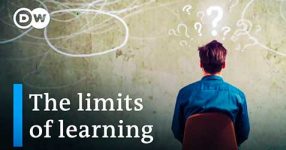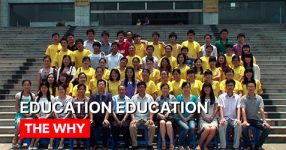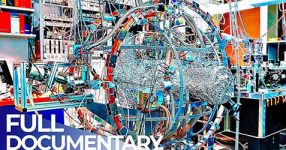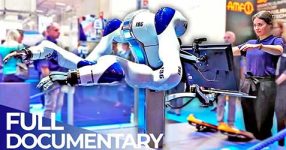The documentary “AI and the Future of Education” explores the evolving nature of education in the face of rapid technological advancements. It begins by highlighting the inadequacies of the current educational system, emphasizing the need for a shift in mindset. The transcript underscores the importance of preparing the younger generation to be job creators, given the potential increase in unemployment.
The narrative then delves into the impact of artificial intelligence (AI) on education. The introduction of robots in classrooms, digital assistants, and various AI applications is examined for their role in enhancing personalized and remote learning, auto-corrections, and unprecedented access to knowledge. However, this technological disruption prompts a critical question: Will teachers eventually be replaced by AI?
Redefining the Role of Teachers
The documentary explores the changing role of teachers in the face of AI integration. It suggests that teachers may transition from traditional instructors to mentors, guiding students through a learning process facilitated by intelligent machines. The concern arises from the perceived standardization of knowledge transfer and the undervaluation of alternative forms of learning. The discussion revolves around the idea of teaching less but enabling individuals to do more, emphasizing the importance of fostering creativity and adaptability.
The historical context is explored, tracing the origins of the current educational system back to the Industrial Age. The need for independent learning centers to train future workers during this era laid the foundation for the educational model still in use today. The challenges of keeping pace with technological changes are acknowledged, emphasizing the necessity of helping children become adaptable and fearless learners.
Navigating the Digital Age
The documentary further addresses the crucial aspect of computational literacy in the digital age. It stresses the benefits of AI in facilitating easier access to information and fostering creativity and intelligence in students. However, the limited integration of these technologies into the education system, attributed to austerity policies and skepticism, poses a significant challenge. The importance of teaching critical thinking and digital literacy emerges as a key aspect for preparing students to navigate the complex digital world.
As the narrative unfolds, it touches upon the potential downsides of AI, such as the risk of loneliness and emotional detachment in personalized learning scenarios. The need for a balance between human interaction and technology is emphasized, urging educators to address these challenges in the integration of AI into the educational landscape.
Challenges and Opportunities Ahead
The documentary concludes by addressing the challenges and opportunities facing education in the future. It examines the disconnect between the public and private sectors in driving digitalization, highlighting the need for collaboration. The emphasis on entrepreneurship, continuous learning, and adaptability to cope with the dynamic job market is underscored.
In the final reflections, “AI and the Future of Education” urges a paradigm shift in education. It advocates for a system that prepares individuals not just for jobs but for life, emphasizing personal growth and development. The role of technology is acknowledged but with a cautionary note, emphasizing the preservation of humanity and the empowerment of individuals through education. The overarching message is a call to embrace change, foster critical thinking, and ensure that education remains a tool for personal and societal advancement in the face of evolving technologies.












